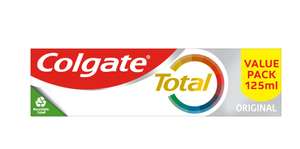
163°
Posted 4 h, 4 m agoLocal
 jazzzy
jazzzy


 jazzzy
jazzzy
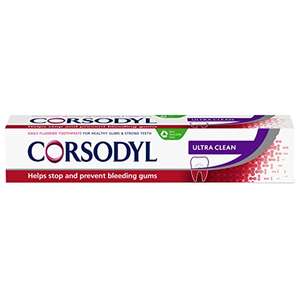
 G0rdonGekko
G0rdonGekko
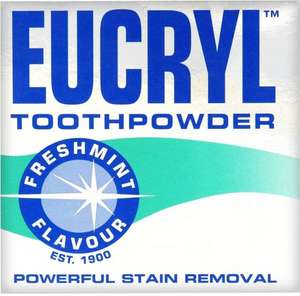
 EnaHia
EnaHia
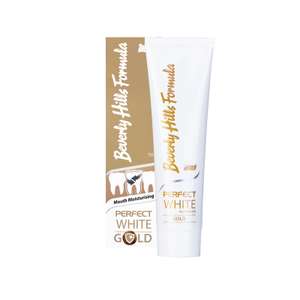
 blackpool999
blackpool999

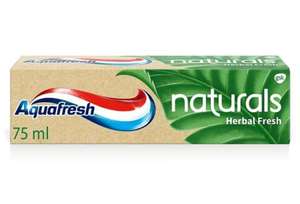
 agalagii
agalagii
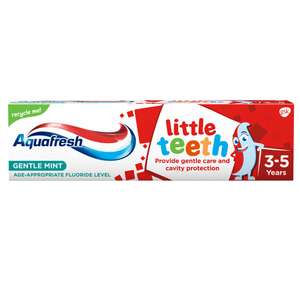
 jazzzy
jazzzy
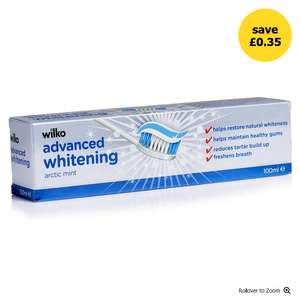
 ReggieS
ReggieS
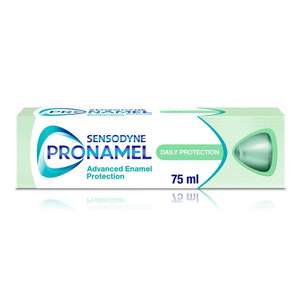
 jazzzy
jazzzy

 dixie1986
dixie1986
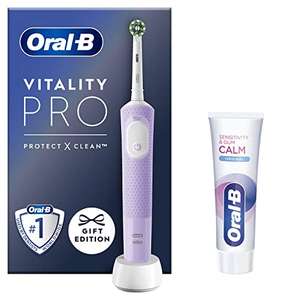
 akil_mayet
akil_mayet
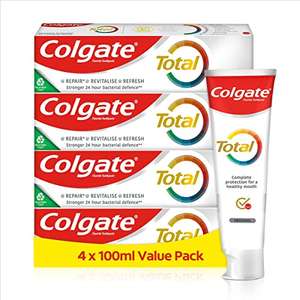
 dc7911
dc7911
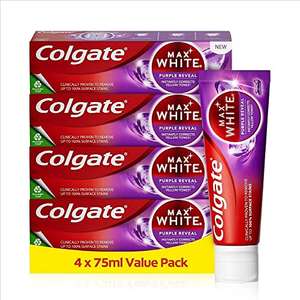
 cyberbabenilorac
cyberbabenilorac
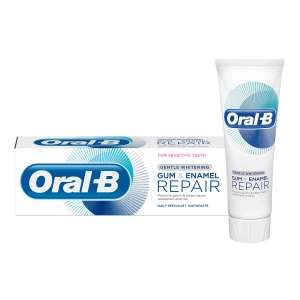
 costco55
costco55
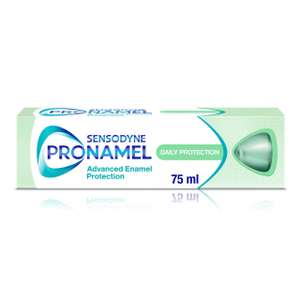
 Babyninja
Babyninja
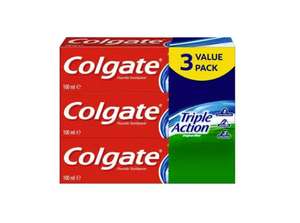
 paul124
paul124
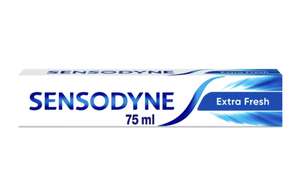
 razeman
razeman
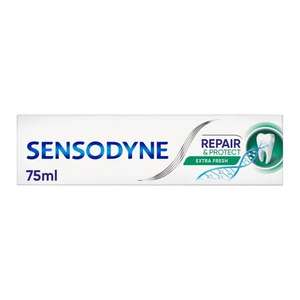
 razeman
razeman
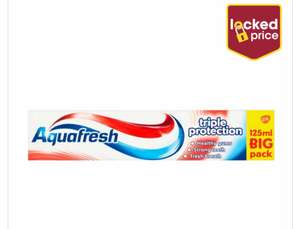
 MadSka
MadSka
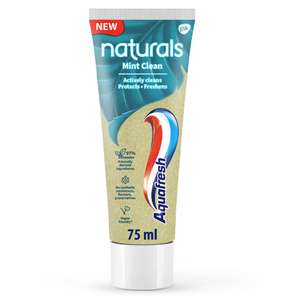
 sparky_
sparky_
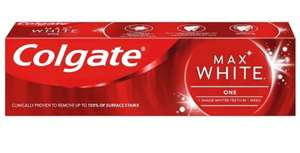
 ReggieS
ReggieS
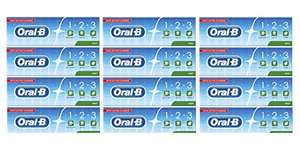
 akil_mayet
akil_mayet
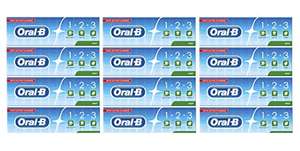
 OllieSt
OllieSt
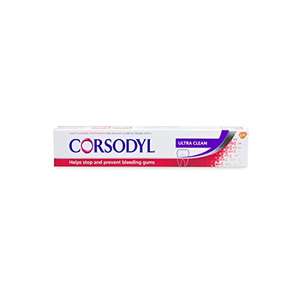
 Bloss5
Bloss5
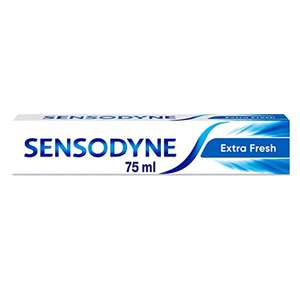
 winky111276
winky111276
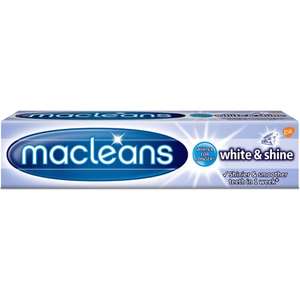
 Jabberbetty76
Jabberbetty76
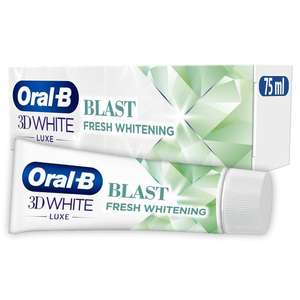
 Gr82nite
Gr82nite
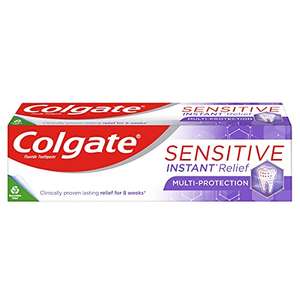
 LD2DVD
1
LD2DVD
1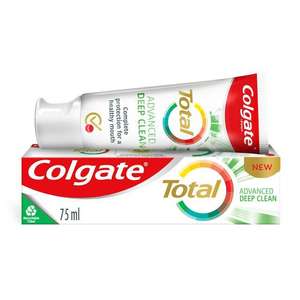
 jade1975
7
jade1975
7
 LEB123
LEB123
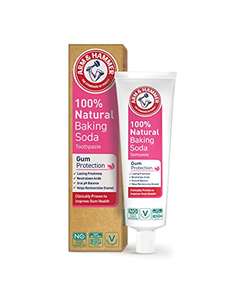
 Lizzy-93
1
Lizzy-93
1Toothpaste is one of those products that we buy instinctively, often without thinking about which style or brand suits our needs. We fall into a daily routine of slapping some Colgate on our toothbrush, giving our teeth a quick clean, before rushing out of the house. But that's actually a big mistake.
Choosing the correct type of toothpaste can have big implications for your health, and there are plenty of famous and not-so-well-known brands on the market. Most are available via cheap toothpaste offers at hotukdeals, but which should you go for?
This buyer's guide offers a quick introduction to the toothpaste varieties available today, how they differ, which brands to choose, and how to find the cheapest toothpaste without compromising on dental health. But before we get into today's selections, let's step back in time for a moment to understand where toothpaste comes from.

Although it's an everyday item in modern society, toothpaste is actually a relatively new phenomenon. Until a century or so ago, hardly anyone had thought of manufacturing pastes specifically for use on toothbrushes. In fact, very few people even used brushes to clean their teeth on a daily basis.
Even so, modern toothpastes do have their ancestors. We know that the people of ancient Egypt used special paste preparations for teeth whitening, something which was emulated later in Rome, where people used crushed shells to make their pastes more “abrasive”, helping to erode plaque deposits.
Evidence of aromatic toothpastes has been found in Medieval Mesopotamia (what we today as the Middle East) and 17th century Japan, but these products were never intended to be used with brushes as with modern varieties. Most of the time, if people resorted to artificial products to clean their teeth, they opted for “tooth powders” instead.
Industrial toothpaste manufacture had to wait for the 1900s when “Kolynos” became a global bestseller. For the first time, toothpaste was sold in squeezable tubes, often with fluoride added to help strengthen tooth enamel.
However, fluoride was controversial, and had to wait until the 1950s to become officially recommended by European and American dental organisations. Proctor and Gamble pioneered these fluoride-based products, launching its famous Crest brand in 1955, which quickly gained a (deserved) reputation for preventing cavities. As people living in America and the UK consumed more sugar after World War Two, toothpastes started to become essential items in daily life.
Since then, fluoride has remained a common strengthening ingredient, but it has been joined by “mineralising” compounds, which some people believe are both safer and more effective. As ecological consciousness has grown, many people have moved away from toothpastes made with oil-based compounds, opting for organic varieties, while the flavours that toothpastes have has become much more diverse, branching out beyond mint to a galaxy of tastes.
Most toothpaste contains abrasive compounds which directly erode dirt and plaque from the surface of teeth. This is the core element of a good product, helping to remove stubborn food debris, while not damaging soft tissue such as gums in the process.
Alongside abrasives, most toothpaste will also contain foaming agents (surfactants), which produce their characteristic texture, and allow them to be squirted easily onto brushes. It also helps to diffuse the toothpaste between teeth and down to the roots, so that all dirt deposits can be removed.
In many cases, emulsifiers will be added to ensure that the product retains its moisture levels for long periods (just like with processed foods). Similarly, it might be necessary to add preservatives, to ensure that toothpaste retains its texture and safety for long periods.
Many toothpastes also include strengthening agents, such as fluoride. This chemical element works by bonding with phosphorus and calcium to create tooth enamel – the outermost covering of our teeth. Without that layer, our teeth quickly succumb to tooth decay (caries), so some kind of strengthening agent is an essential part of most products.
Some also add in tooth whitening agents. This is an optional extra, but a popular choice in modern societies, where the cosmetic benefits of a brilliant smile are commonly accepted. They work by tackling what are called “extrinsic stains” on the tooth enamel, and chemically breaking down discolouring compounds. This won't be a complete solution for smokers or those with deep-seated tooth staining, but it often makes a major difference.
Finally, almost all toothpaste contains flavouring agents. On its own, toothpaste would tend to taste chalky or have very little taste – which is hardly likely to encourage users to brush regularly. The addition of fresh flavours helps to encourage daily use and tackles bad breath, without adding sugars which would counteract the efficacy of the toothpaste's cleaning compounds.

As with most consumer products, toothpaste doesn't come in a one-size-fits-all format. Although most people stick with a single brand, the amount of choice can be dizzying when you take it all in, and many different types and brands are available to pick from. First, let's lay out the main varieties buyers will find, both at hotukdeals and high street stores:
Toothpaste with Fluoride – As we noted earlier, fluoride has been added to toothpaste for over 100 years, and continues to be recommended by the American Dental Association and the UK's National Health Service. Proven to strengthen teeth, fluoride toothpastes have their critics, but most health authorities dismiss these concerns as scientifically unfounded. Instead, the NHS recommends that people focus on choosing the right fluoride concentration for individual needs. For instance, children should use pastes with a fluoride concentration of 1,000ppm, while adults should increase the concentration to 1,500ppm or so. All major brands manufacturer fluoride-based toothpastes, including Colgate, Crest, Sensodyne and Oral B, and they can often be found at very affordable prices.
Toothpaste with Charcoal – Charcoal has long been used in abrasive dental formulations, as it's a very effective way to erode dirt from hard surfaces. However, its use in toothpaste is relatively new. The idea behind using toothpaste with charcoal is pretty simple: thanks to the abrasive qualities of charcoal, these formulations will be much more effective in whitening tooth enamel than standard fluoride-based options. In fact, fluoride has been associated with yellowing, so those who are especially concerned about the brilliance of their teeth should opt for charcoal. Some say that charcoal toothpaste has heightened antibacterial properties as well, although the science behind these claims is not solid. Still, they are great for whitening. Popular options include Arm & Hammer, Olivia, and Schmidt's.
Toothpaste for Smokers – If you regularly smoke cigarettes or cigars, you'll probably have noticed that they have pronounced effects on the colour of your teeth. In the past, this staining was more or less fixed, and not much could be done. However, modern toothpaste has been developed to cater to smokers, and they can have noticeable effects on the appearance of teeth. Clinomyn is a good example, offering polynam-based anti-stain mechanisms (and the strengthening power of fluoride). Euthymol is also popular, containing a mix of essential oils that tends to neutralise the effects of tar and smoke.
Children's toothpaste – As we noted earlier, health authorities make specific recommendations about fluoride levels for children. But there are other compounds to think about when selecting pastes for kids – so it makes sense to purchase specific formulations that have been created with kids in mind. Sensodyne has a good range of products for kids, especially those with sensitive teeth. Look for products with gentle but appealing flavours, and mineral fortification as well.

This is a hard question, and one we very rarely ask ourselves – even though we should. On one hand, toothpaste needs to taste good. There's no way around that. If toothpaste is disgusting, it doesn't really matter how effective it is at removing dirt, stains, or bacteria – we simply won't use it.
However, the cheapest toothpaste products tend to focus on taste above everything else. If you have a pound or two to spare, try this out at a nearby supermarket. Buy the cheap generic brand from the shop, and compare it to an upmarket alternative. The cheaper paste will almost always taste fine, which is often due to enhanced saccharine concentrations (or sugar in some cases). But that's an illusion.
Aside from taste, look for products with fluoride if possible. Don't be swayed by arguments that fluoride is harmful to teeth, but do look for products that blend fluoride with whitening agents. And check labels carefully for any warnings about suitability for children or those with sensitive teeth. Toothpaste makers aren't always as upfront as they should be about their products, but are required to list any issues in the small print.
Additionally, check that the toothpaste has been officially approved, something which applies especially if you purchase online (as many people now choose to do). Accreditation from the British Dental Health Foundation is a common seal of approval, but reading online reviews can help as well.
If you don't have the time to research every tube of toothpaste you buy, don't worry. Not many of us do. But we can take a short cut to enjoying excellent oral health by choosing toothpaste from the UK's most reliable brands, instead of opting for cheaper but less reputable alternatives. All of these brands can be found in the toothpaste listings at hotukdeals, and should have products to suit your needs:
Oral B – Marketed by Procter and Gamble, Oral B was created by Robert Hutson in the USA back in the 1950s, initially as an innovative toothbrush manufacturer. Since then, the company has expanded into the toothpaste sector and is a common sight at all UK supermarkets. Oral health experts tend to praise the company's Pro-Expert range particularly highly. Containing “stannous fluoride”, this collection provides all-round protection that most brands can't match while having a gentle minty taste, and tackling stains pretty well.
Colgate – Probably the world's most famous toothpaste brand, Colgate has been making dental products since 1873. Owned by American giant Colgate-Palmolive, the company markets a wide-range of toothpaste, with very cheap and more sophisticated options all jostling for attention. Steer clear of the cheapest varieties. Instead, go for Colgate Total Proof. Like Oral B's Pro Expert products, Total Proof goes a little bit further than standard products, protecting enamel, promoting whitening, and freshening breath. You'll notice the difference.
Sensodyne – Specialists in producing toothpastes for those with sensitive teeth, Sensodyne is owned by pharma giant GlaxoSmithKline, and has been operating since 1961. If your dentist diagnoses sensitivity or you need to use a specialist toothpaste to prepare for oral operations, Sensodyne's products will often be a go-to option. But they aren't priced out of reach for most consumers. Instead, varieties like Repair and Protect or Extra Whitening are usually pretty affordable – particularly when you use hotukdeals discount codes. If you feel any discomfort when eating hot or very cold foods, giving Sensodyne a try could make a lot of sense.
Those are the “big three” in the UK toothpaste market, but your choices won't end at Colgate, Sensodyne, or Oral B. Crest is another option (and do a great job of appealing to children with their colourful formulations). Regenerate is a more upscale manufacturer, which focuses on helping to whiten teeth. Kingfisher makes a reliable range of delicately flavoured toothpaste, while AloeDent creates blends based around Aloe Vera – a different take on standard varieties that some buyers will adore.

With the rise of ecological awareness in society, consumers are reaching more and more for organic products that have a minimal environmental footprint, and toothpaste is no exception. So which brands and products have the eco-credentials to promote dental health while keeping impacts on the natural world low?
When you dive into the hotukdeals toothpaste listings, you'll find a wide range of “natural” toothpaste. Not all of these are technically organic, so keep that in mind. It just means that they are based around herbal or naturally-occurring ingredients, not by-products from chemical industry.
Some can also be very expensive. For example, boutique toothpaste makers Lebon market blends based around aloe vera and tea, and tend to charge £20 per tube for the privilege. It's up to you whether the price is worth paying, but if deals are available, it's worth giving these products a try.
Popular varieties include products made using coconut oil (BioMed is a great example here), the aforementioned aloe vera options from AloeDent, Euthymol's herbal formulations, and Dr Bronner's cinnamon flavoured pastes. All are genuine dental medications, with cleaning properties. But all have an environmental component (and some delicious flavours). Check them out at hotukdeals when discounts appear.
Some people will also swear that organic toothpastes can have other benefits, including assistance in managing skin care. So, does toothpaste get rid of spots? Possibly, if you choose the right brand and product, but most beauty experts tend to advise against relying on Colgate to deal with blackheads.
Using harsh formulas in mainstream toothpaste can actually enflame spots, instead of making them disappear, leading to longer-term blemishes. However, organic products with antibacterial, soothing compounds probably won't do too much harm. But they aren't a cure-all for spots and blemishes, that's for sure.

Optimise your daily health routine by choosing the perfect toothpaste. Most of us fall into routines of buying the same old Colgate or Crest products week-in, week-out. But as we've seen, that's not exactly the best way to keep our teeth and gums healthy. By picking a suitable toothpaste, you can promote oral health, find better-tasting products, and freshen your breath.
However, as we've also found, upscale toothpastes are generally more expensive. So what's the solution? If you want to upgrade your oral health routine, shopping at hotukdeals will be the way to go. Our listings collect toothpaste deals from all of the UK's major retailers, including Asda, Tesco, Boots, Superdrug, Sainsbury's and Amazon. So you can find discounts for bestselling and niche toothpastes, whenever the need arises.
If you're hunting for really pricey boutique varieties, our listings can help. But it's also worth waiting until you can find expensive toothpaste on sale for less. Black Friday is a good time to shop for beauty and health discounts on premium brands, but sales can happen anytime. Keep tabs on the deals on offer at the hotukdeals toothpaste listings to find the best prices for the UK's best oral health products.
Finding the right toothpaste can have a host of benefits. We can whiten our teeth, making our smiles more appealing. We can dislodge stubborn debris and plaque deposits, helping to head off the risk of tooth decay, and we can also make our breath smell as fresh as possible. If all of that sounds good, don't settle for inferior toothpaste. Check out the hotukdeals toothpaste listings and pick a premium brand that gets the job done.